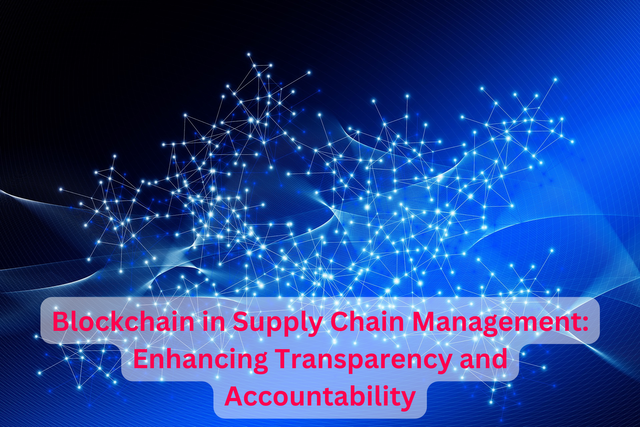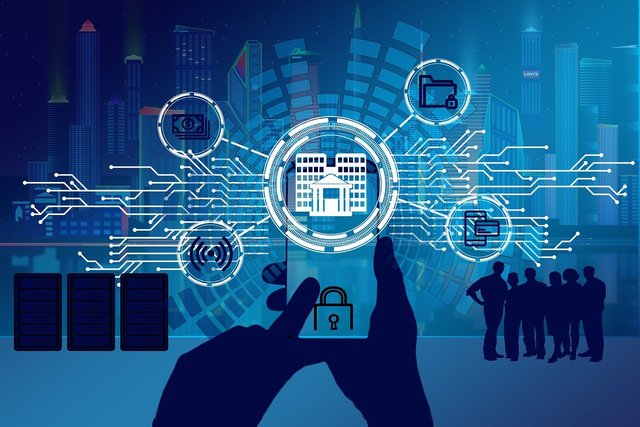Blockchain in Supply Chain Management: Enhancing Transparency and Accountability
Hello everyone I am @shahariar1 mod of Steem of Animals Community.I am From #Bangladesh
 |
|---|
Introduction :Managing supply chain involves a number of processes that interact in a systematic manner and which involves various players in supply chain right from manufacturers to the consumers. Transparency, traceability and accountability of participants and counter parts within this complex web is of essence of efficiency and risk management and customer confidence. Enter blockchain technology a decentralized and secure digital record that has the potentiality to redefine SCM.
The Blockchain Advantage
The blockchain ensures that the supply chain processes are tracked through real-time solutions. Here's how:
Immutable Records: Every action or a transaction on the supply chain process is a block in the blockchain system. The disadvantage of using a document once is that one cannot change or delete it after it has been added. This clears any doubts and highlights that everyone is working to a single source of truth.
Product Tracking: Starting from acquiring the raw materials, a company’s stakeholders can follow the products right up to their delivery on the shelves. In essence, blockchain acts as a way of bringing enhanced traceability even when it comes to the verification of organic foods or fair labor.
 |
|---|
Efficiency and Resilience
Procurement Processes: From the above analysis, it can be deduced that through the use of blockchain, businesses manage procurement. Smart contracts facilitate purchase order, invoices, and even payment, which eliminates paper works and other related expenses.
Cost Reduction: Reduced cost is one advantage of a good supply chain management system. Real business values of blockchain are free from delays and long queues; as a result, there is less excess inventory and waste in the system.
Resilience: Thus, with the help of blockchain, there is no disruption in transportation, no gaps in supply chains, no disruption in voting or economic processes in crisis periods and states of emergency, whether they are natural disasters, geopolitical crises, or pandemics. Decentralization helps avoid special circumstances when all users are concentrated in one area or use one device.
 |
|---|
Building Trust and Mitigating Risks
Collaboration: Blockchain brings together various entities into a single solution that unites each of them into a single system. Manufacturers and suppliers, logistics service providers and retailers are able to exchange information. This brings a connection between widely separated points and improves brand allegiance.
Risk Management: Thus, the usage of blockchain solves the problem of early risk identification and helps reduce their occurrences in companies. In general, blockchain helps in assessment of risks, for example, in cases with fakes or with respect to environmental requirements.
 |
|---|
While blockchain holds immense potential, challenges remain:While blockchain holds immense potential, challenges remain:
Scalability: The challenge that arise as more transaction are taking place is the issue of scalability. Some of the current solutions are sharding and layer-2 solutions for example.
Interoperability: Somehow, one blockchain has to interact with the other. Interoperability standards are evolving.
Regulatory Adaptation: Current laws may be insufficient to govern decentralised structures. Regulatory frameworks need adaptation.
 |
|---|
Blockchain holds the potential to today’s supply chain management what railways did for transportation in the 19th century. However, the reach is not limited to transparency; it realigns collaboration, risk, and operational efficiency. They also create an honest and more stable environment for a global supply chain as the organizations opt for blockchain.
In conclusion, it is necessary to notice that despite the fact that the blockchain has become quite an extensive buzzword, it is much more than that: a revolutionary tool that enhances stakeholders’ control and makes supply chain more transparent and protective. If you need more information or have more questions let me know!
Support @bangla.Witness by Casting your witness vote
VOTE @bangla.witness as witness

X promote link:
https://x.com/Shahari73599011/status/1810882468733669452
Note:- ✅
Regards,
@jueco